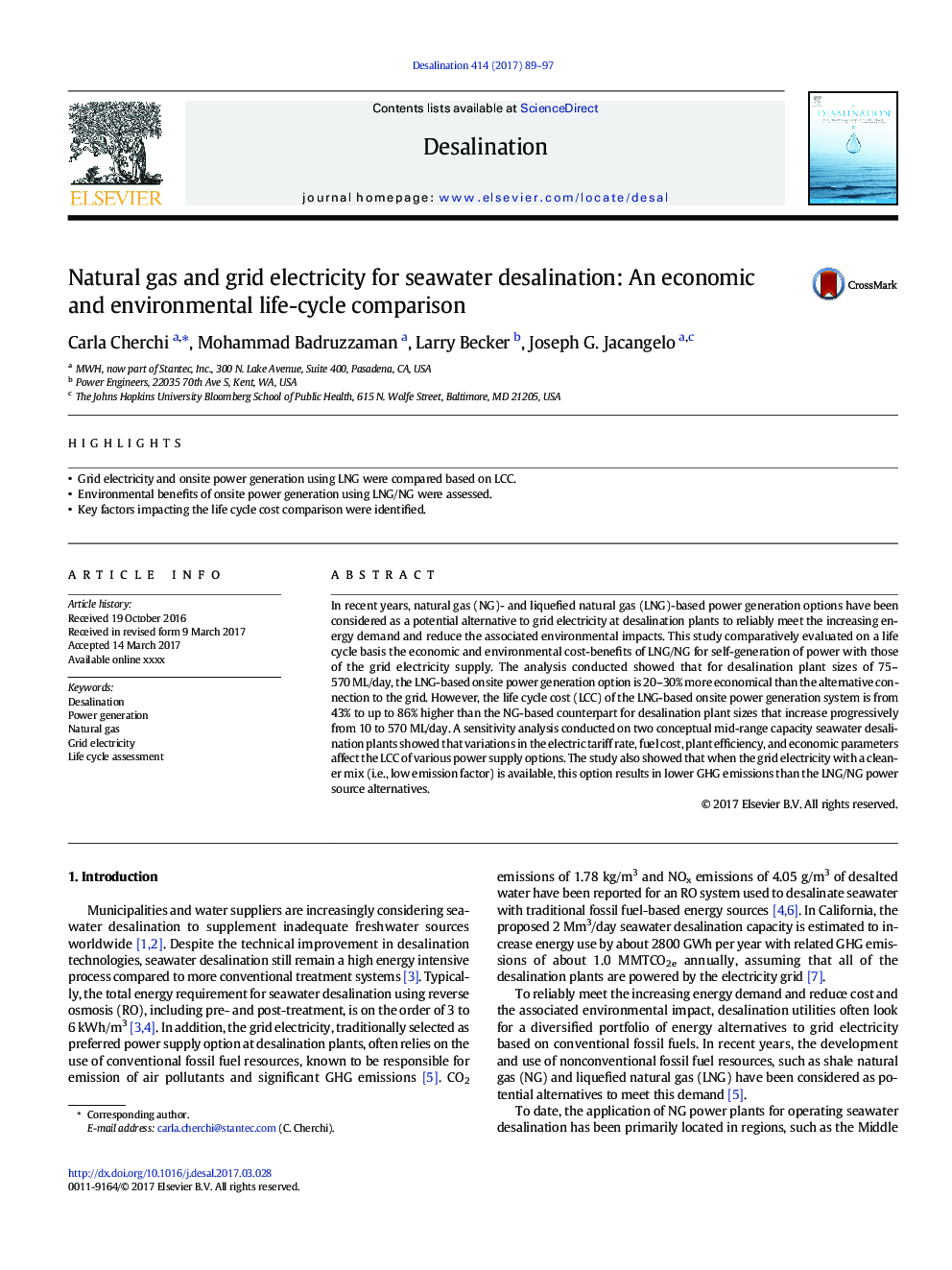| Article ID | Journal | Published Year | Pages | File Type |
|---|---|---|---|---|
| 4987746 | Desalination | 2017 | 9 Pages |
Abstract
In recent years, natural gas (NG)- and liquefied natural gas (LNG)-based power generation options have been considered as a potential alternative to grid electricity at desalination plants to reliably meet the increasing energy demand and reduce the associated environmental impacts. This study comparatively evaluated on a life cycle basis the economic and environmental cost-benefits of LNG/NG for self-generation of power with those of the grid electricity supply. The analysis conducted showed that for desalination plant sizes of 75-570Â ML/day, the LNG-based onsite power generation option is 20-30% more economical than the alternative connection to the grid. However, the life cycle cost (LCC) of the LNG-based onsite power generation system is from 43% to up to 86% higher than the NG-based counterpart for desalination plant sizes that increase progressively from 10 to 570Â ML/day. A sensitivity analysis conducted on two conceptual mid-range capacity seawater desalination plants showed that variations in the electric tariff rate, fuel cost, plant efficiency, and economic parameters affect the LCC of various power supply options. The study also showed that when the grid electricity with a cleaner mix (i.e., low emission factor) is available, this option results in lower GHG emissions than the LNG/NG power source alternatives.
Related Topics
Physical Sciences and Engineering
Chemical Engineering
Filtration and Separation
Authors
Carla Cherchi, Mohammad Badruzzaman, Larry Becker, Joseph G. Jacangelo,
